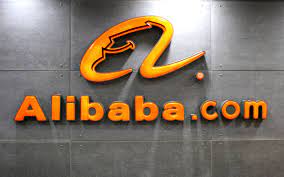
A new processor that it will use for powering its servers in its data centers has been developed by Chinese tech giant Alibaba Group Holding Ltd, the company announced on Tuesday.
This is the latest move by the Chinese firm into the sphere of semiconductors which is in line with what a number of other companies operating in the global cloud computing industry are doing while also fitting into the target of the Chinese government of the country gaining supremacy in the global semiconductor sector.
The chip has been named the Yitian 710 and has been developed by Alibaba's in-house semiconductor unit T-Head. Architecture from United Kingdom based Arm Ltd forms the basis of the development of the chip and the company will not make the chip commercially available and would be used only within the company.
In the Chinese market, Alibaba is the leader in the cloud computing business in terms of market share while also being the number three in the sector globally, according to data from research firm Gartner.
A number of their in-house developed semiconductor chips have been developed by Alibaba’s rivals in the sector. For example, Huawei Technologies Co Ltd and Amazon.com Inc currently are making use of their respective Kunpeng and Graviton semiconductor chips that power their cloud computing infrastructure.
A proprietary line of servers, called Panjiu, has also been developed by it, Alibaba also said. The company also said that the source code for its Xuantie series of IP cores — based on the RISC-V open source architecture, will be made public by it. The Xuantie was unveiled by Alibaba in 2019.
It has been quite some time that the domestic industry is being urged by China's government to make more investment in the development of the domestic chip industry, which is still a distance behind the globally leading nations in the sector.
As of now, Alibaba is significantly dependent on foreign companies for supply of the majority of the advanced semiconductors that it uses, which is a weakness that had come to the forefront after the imposition of sanctions by the United States against Huawei that severely hit the booming smartphone business of the Chinese firm.
Large investments in the development of their own semiconductor ships are being made by a number of other tech companies in China in addition to Alibaba, including search giant Baidu Inc, phone maker Xiaomi Corp, and a number of Chinese automotive and appliance firms.
(Source:www.itpro.co.uk)
This is the latest move by the Chinese firm into the sphere of semiconductors which is in line with what a number of other companies operating in the global cloud computing industry are doing while also fitting into the target of the Chinese government of the country gaining supremacy in the global semiconductor sector.
The chip has been named the Yitian 710 and has been developed by Alibaba's in-house semiconductor unit T-Head. Architecture from United Kingdom based Arm Ltd forms the basis of the development of the chip and the company will not make the chip commercially available and would be used only within the company.
In the Chinese market, Alibaba is the leader in the cloud computing business in terms of market share while also being the number three in the sector globally, according to data from research firm Gartner.
A number of their in-house developed semiconductor chips have been developed by Alibaba’s rivals in the sector. For example, Huawei Technologies Co Ltd and Amazon.com Inc currently are making use of their respective Kunpeng and Graviton semiconductor chips that power their cloud computing infrastructure.
A proprietary line of servers, called Panjiu, has also been developed by it, Alibaba also said. The company also said that the source code for its Xuantie series of IP cores — based on the RISC-V open source architecture, will be made public by it. The Xuantie was unveiled by Alibaba in 2019.
It has been quite some time that the domestic industry is being urged by China's government to make more investment in the development of the domestic chip industry, which is still a distance behind the globally leading nations in the sector.
As of now, Alibaba is significantly dependent on foreign companies for supply of the majority of the advanced semiconductors that it uses, which is a weakness that had come to the forefront after the imposition of sanctions by the United States against Huawei that severely hit the booming smartphone business of the Chinese firm.
Large investments in the development of their own semiconductor ships are being made by a number of other tech companies in China in addition to Alibaba, including search giant Baidu Inc, phone maker Xiaomi Corp, and a number of Chinese automotive and appliance firms.
(Source:www.itpro.co.uk)














